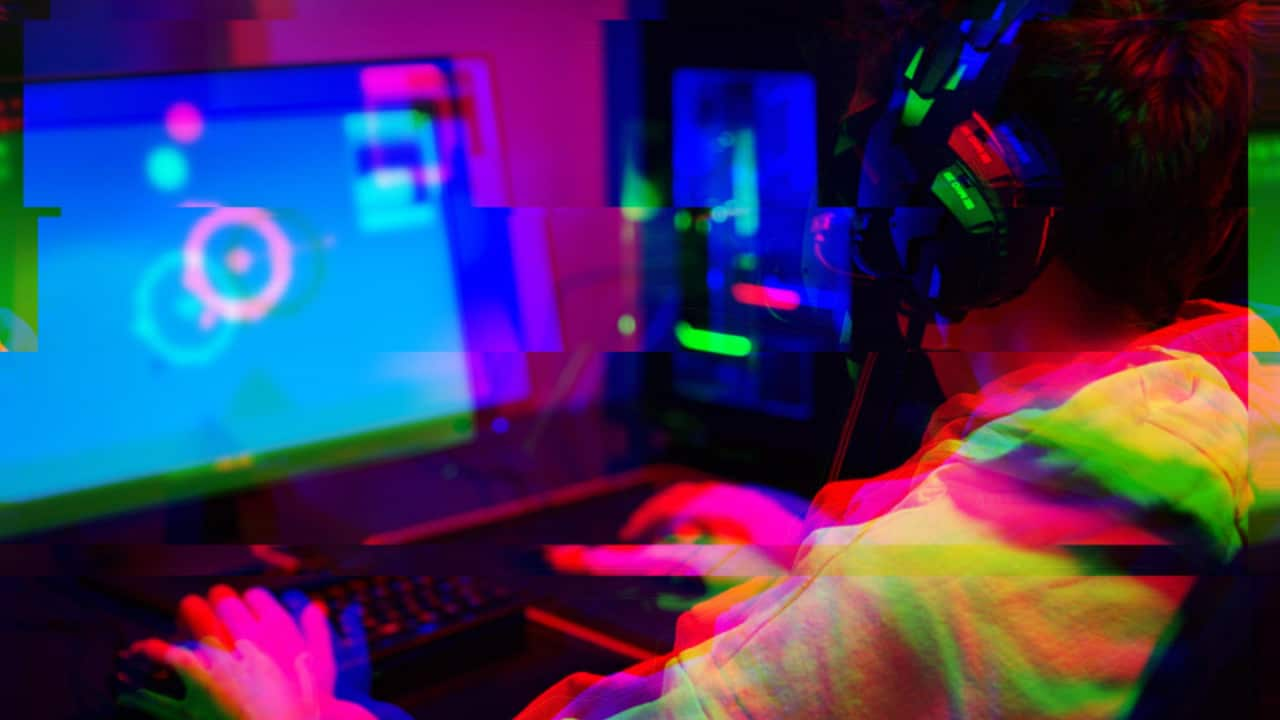spk_0
SBS acknowledges the Traditional Owners of Country throughout Australia.
Jamie
Once you start normalising really awful words and behaviours and attitudes, it does seep into you.
Nic
From SBS Examines, I’m Nic Zoumboulis. In this episode of Understanding Hate, we’re looking at the radicalisation of young people. Experts are concerned that following the COVID pandemic and the evolution of online algorithms, there’s now potential for mass radicalisation. So how is it occurring?
Jamie
I was really unwell, by the time I dropped out of school in year 10, I'd probably missed about three quarters of high school and I had a lot of time by myself online, a lot of time that I was really unhappy with myself and I became quite misanthropic and I was quite lost and I was lacking direction.
Nic
That’s Jamie. In his search for connection as a teen, he found friends online in video games and chat rooms.
Jamie
It was still a sense of community that I didn't get in my real life at that time. Gaming isn't just about playing games, it's about being with people and sort of enjoying their company. And I think the company that I had, even if we were all a bit misguided at the time, at least we had each other in a way. I think that's maybe something that is quite hard to understand is, if you're lonely, it's really hard to challenge the things you see and hear around you.
Nic
Jamie said he was absorbed in a place where toxic language was normalised. And it led to hateful ideas about the world and certain groups of people.
Jamie
We all thought it was edgy, therefore it was fine cause it was somewhat comedic, but the reality is you don't realise when you're that young how impactful these things are, not just on other people, but really on yourself. You do end up being sort of a shadow of yourself. I said things to my sisters at the time that I'm deeply regretful of now, I feel embarrassed to think about.
Nic
While it’s normal for young people to be interested in edgy or taboo content, extremists know and often leverage that in their recruitment. Here’s Professor Debra Smith, an expert on violent extremism from Victoria University.
Debra Smith
A lot of their propaganda is really shaped to be interesting, funny, visually appealing. Young people can get emotional rewards from engaging with risk-taking, looking at taboo material, hanging with people who probably other people don't approve of. Whilst objectively it might be hateful, their experience and what's driving them may not be about hate. For the young person experiencing it, it can actually be a place of humour, of joy, of belonging, of acceptance.
Nic
Professor Smith said extremists can recruit young people through exploiting their need for belonging and connection.
Debra Smith
Young people are trying to sort of explore who they are, what they believe in, where and how they fit into the world, and unfortunately, violent extremist movements provide a really strong sense of identity, albeit a very unhealthy one, that can be appealing to some young people who may be struggling to build a strong sense of self.
Nic
Although it can be concerning to see a young person adopting extremist language and ideology, that may not automatically mean they’re headed for violence.
Debra Smith
Radicalisation is the process where a person's beliefs and ideas start to significantly move away from what would be considered mainstream or generally acceptable. This in itself is not problematic because radical ideas and movements have often changed the world for the better. So an example of that would be the civil rights movement. And in this case, radicalisation to violent extremism, we're talking about when these changes in beliefs and ideas lead to a person accepting that perpetrating violence is a legitimate way to solve their grievance or their problem.
Nic
You don't have to go very far to find extremist content and recruiters. For Jamie, it was through gaming and popular online forums.
Peta Lowe
The majority of young people that I've worked with haven't actively searched for it. It's something that has been available. It starts where the kids already are. It's in things like gaming chats, short video feeds, social media platforms, those sorts of things, and not necessarily in the sort of dark corners of the internet that we would like to think.
Nic
That’s Peta Lowe, a countering violent extremism practitioner. She said while young people are limited by developmental factors and often manipulated by extremist recruiters, it’s unhelpful to treat them as entirely lacking in agency.
Peta Lowe
Because if you take away someone's agency, you also take away their ability to do anything about it. So I think it's helpful to talk about what are the factors that make someone a young person or otherwise vulnerable, and what are some of the reasons why people might make choices that way.
Jamie
In our next episode, we’ll be looking at how to help at-risk young people. For Jamie, there was a conversation that led him to questioning the harmful beliefs that were surrounding him.
Jamie
And that gave me such a great new perspective on the world around me and a realisation that the horrible ways that the communities I've been in the past had made them feel awful.
spk_2
This episode was produced and presented by Nic Zoumboulis. To find out more, visit sbs.com.au/sbsexamines




